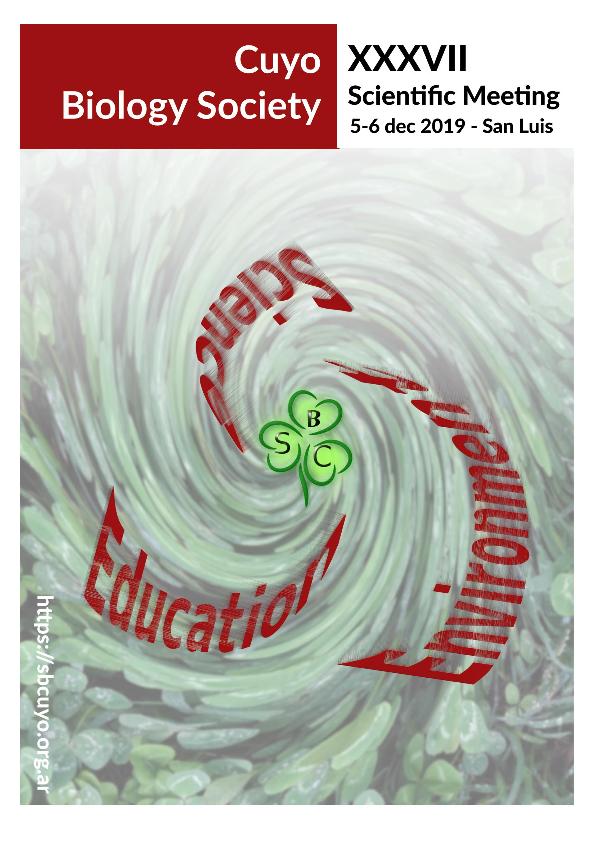Evento
Chloroquine alters expression and distribution of cation-dependent mannose 6-phosphate receptor of breast cancer cells
Pereyra, Laura Lucia ; Peralta, S.; Cunietti, Martín; Vargas Roig, Laura Maria
; Peralta, S.; Cunietti, Martín; Vargas Roig, Laura Maria ; Sosa, M. A.; Carvelli, Flavia Lorena
; Sosa, M. A.; Carvelli, Flavia Lorena
 ; Peralta, S.; Cunietti, Martín; Vargas Roig, Laura Maria
; Peralta, S.; Cunietti, Martín; Vargas Roig, Laura Maria ; Sosa, M. A.; Carvelli, Flavia Lorena
; Sosa, M. A.; Carvelli, Flavia Lorena
Tipo del evento:
Reunión
Nombre del evento:
XXXVII Reunión Científica Anual de la Sociedad de Biología de Cuyo
Fecha del evento:
05/12/2019
Institución Organizadora:
Sociedad de Biología de Cuyo;
Título de la revista:
Biocell
Editorial:
Tech Science Press
ISSN:
0327-9545
e-ISSN:
1667-5746
Idioma:
Inglés
Clasificación temática:
Resumen
Breast cancer is one of the most important causes of morbidity and mortality worldwide. Several tumoral cells have increased their lysosomal biogenesis in response to metabolic alterations, which also has an impact on the integrity and/or lysosomal functionality, showing increased levels of lysosomal proteases, such as cathepsin D (CatD). CatD was reported to induce apoptosis when is released into the cytoplasm. Since the lysosomes could play a role either as initiators or executors of apoptotic processes when the membrane integrity is altered, this organelle could be taken as a potential therapeutic target against tumors. Lysosomal proteases are delivered by mannose-6-phosphate receptors (cation dependent, CD-MPR, and independent-, CI-MPR) from the trans-Golgi to late endosomes, where enzyme-receptor complexes are dissociated and the receptor recycled. Chloroquine (CQ) is a lysosomotropic agent that prevents endosomal acidification. It accumulates inside the acidic compartments and it is used as a potent adjuvant when combined with antitumoral drugs. The aim of this study was to evaluate the effect of CQ on the lysosomal protease endocytic pathway through the CD-MPR behavior in breast cancer cells. Tumorigenic mammary cell line MCF-7 was incubated with CQ for 12 h. Cultures were subjected to immunoblot analysis and IFI. We observed an increased expression of CD-MPR by the treatment. Moreover, the receptor is redistributed from a perinuclear region to a punctuated cytoplasmic detection. In addition, mature CatD form was decreased by the treatment. Our results suggest that CD-MPR-containing compartments are affected by CQ, possibly leading to an impeded CatD trafficking and processing.
Palabras clave:
BREAST CANCER
,
CD-MPR
,
CHLOROQUINE
Archivos asociados
Licencia
Identificadores
Colecciones
Eventos(IHEM)
Eventos de INST. HISTOLOGIA Y EMBRIOLOGIA DE MEND DR.M.BURGOS
Eventos de INST. HISTOLOGIA Y EMBRIOLOGIA DE MEND DR.M.BURGOS
Citación
Chloroquine alters expression and distribution of cation-dependent mannose 6-phosphate receptor of breast cancer cells; XXXVII Reunión Científica Anual de la Sociedad de Biología de Cuyo; San Luis; Argentina; 2019; 17-17
Compartir



